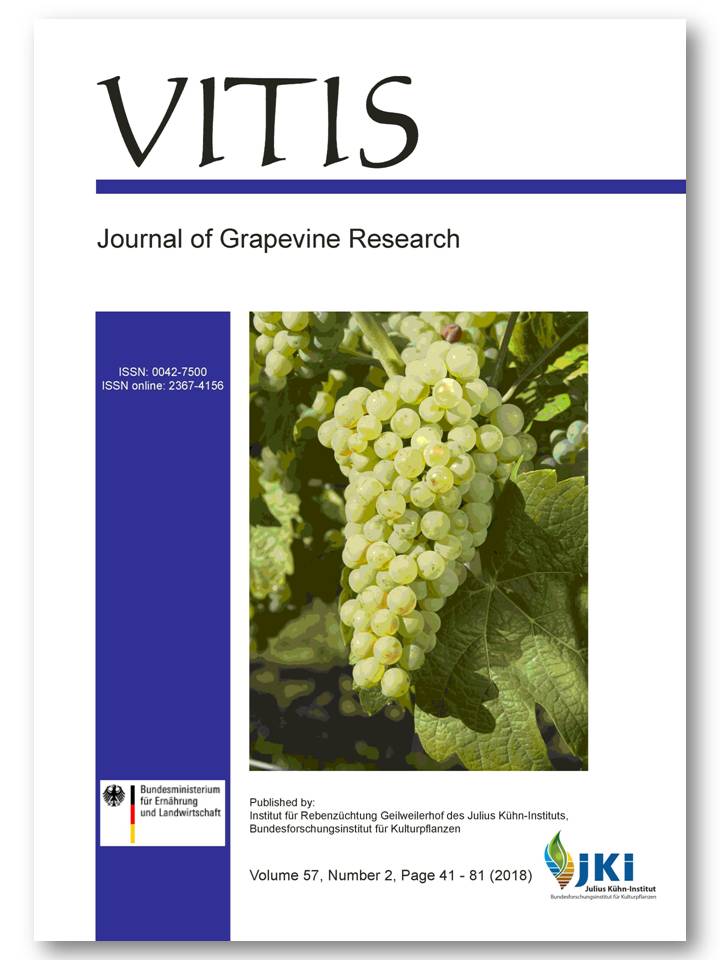Evaluation of intron containing potential reference gene-specific primers to validate grapevine nucleic acid samples prepared for conventional PCR and RT-PCR
DOI:
https://doi.org/10.5073/vitis.2018.57.69-73Keywords:
cDNA synthesis; polymerase chain reaction; Vitis vinifera.Abstract
Previously we proved the usefulness of an intron containing reference gene, phosphoenolpyruvate carboxylase (PEP) to validate cDNA synthesis for detection of grapevine viruses by conventional RT-PCR from crude nucleic acid preparations. Thus amplicons derived from residual genomic DNA (gDNA) and cDNA can be clearly distinguished by their sizes. Here we designed novel sets of primers which encompass one or two intron containing sequences of grapevine housekeeping genes such as actin, tubulin and elongation factor 1-α. Using these primers the expected sequences were amplified from gDNAs of the tested 24 grapevine cultivars. Thereafter they were challenged using cDNAs prepared from total nucleic acid samples isolated from cambial scrapings of dormant canes, leaf laminas, petioles and in vitro leaves of 12 grapevine cultivars. All of these novel, and the previously published PEP gene-specific primers generated the amplification of the expected shorter DNA fragments without introns. Thus they are suitable to check the quality of nucleic acid preparations and to validate subsequent cDNA synthesis prior to pathogen detection assays.
Downloads
Published
Issue
Section
License
The content of VITIS is published under a Creative Commons Attribution 4.0 license. Any user is free to share and adapt (remix, transform, build upon) the content as long as the original publication is attributed (authors, title, year, journal, issue, pages) and any changes to the original are clearly labeled. We do not prohibit or charge a fee for reuse of published content. The use of general descriptive names, trade names, trademarks, and so forth in any publication herein, even if not specifically indicated, does not imply that these names are not protected by the relevant laws and regulations. The submitting author agrees to these terms on behalf of all co-authors when submitting a manuscript. Please be aware that this license cannot be revoked. All authors retain the copyright on their work and are able to enter into separate, additional contractual arrangements.



